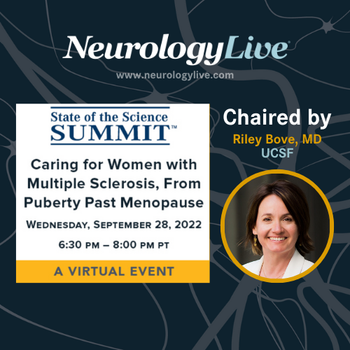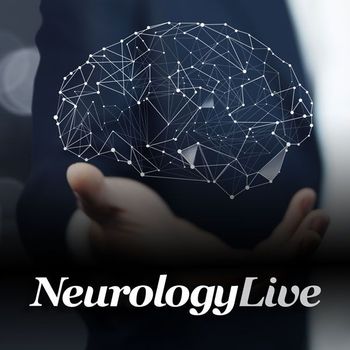
Test your neurology knowledge with NeurologyLive®'s weekly quiz series, featuring questions on a variety of clinical and historical neurology topics. This week's topic is stroke and cerebrovascular disease.

Matt Hoffman, Editorial Director for NeurologyLive, has covered medical news for MJH Life Sciences, NeurologyLive’s parent company, since 2017. He executive produces the NeurologyLive Mind Moments® podcast, and hosted the Medical World News show Deep Dive. Follow him on Twitter @byMattHoffman or email him at [email protected]

Test your neurology knowledge with NeurologyLive®'s weekly quiz series, featuring questions on a variety of clinical and historical neurology topics. This week's topic is stroke and cerebrovascular disease.

Among a cohort of more than 300 patients in China, those with APQ4 positive NMOSD reported a significantly lower risk of relapse among those treated with rituximab compared with the other groups.

Chaired by Riley Bove, MD, this NeurologyLive® State of the Science Summit will be held virtually at 6:30 PM on September 28, 2022. Register for free now!

The treatment, previously known as NNZ-2566, is supported by data from the LAVENDER study. With no plans to hold an advisory meeting, the agency set a PDUFA date of March 12, 2023, for the Acadia Pharmaceuticals product.

Test your neurology knowledge with NeurologyLive®'s weekly quiz series, featuring questions on a variety of clinical and historical neurology topics. This week's topic is headache and migraine.

The investigational Ionis and AstraZeneca treatment showed clinically meaningful changes in serum TTR concentration and modified Neuropathy Impairment Score +7 measures. The companies intend to file an NDA based on the findings of the NEURO-TTRansform study.

Barry J. Byrne, MD, PhD, the associate chair of pediatrics and director of the Powell Gene Therapy Center at the University of Florida; and the chief medical advisor to the Muscular Dystrophy Association, offered his perspective on the upcoming FDA decision on AT-GAA (Amicus Pharma).

Mind Moments®, a podcast from NeurologyLive®, brings you an exclusive interview with Christopher Elder, MD. [LISTEN TIME: 32 minutes]

Similarly, the prospective observational data of active duty military individuals showed that comorbid obstructive sleep apnea and insomnia resulted in worsened symptoms and sleep-related impairments.

The hold was originally placed on part B of the phase 2 MOMENTUM trial in Duchenne muscular dystrophy following a June 2022 report of hypomagnesemia after treatment with high-dose SRP-5051. Going forward, Sarepta will adjust its global trial protocol.

Olwen C. Murphy, MBBCh, and Matthew R. Vogt, MD, PhD, discussed the current clinical understanding of AFM and the need to recognize this condition amid the “peak” months of infection: August, September, and October.

Catch up on any of the neurology news headlines you may have missed over the course of the last month, compiled all into one place by the NeurologyLive® team.

Test your neurology knowledge with NeurologyLive®'s weekly quiz series, featuring questions on a variety of clinical and historical neurology topics. This week's topic is epilepsy and seizure disorders.

The 0.2% topical gel, branded as Hyftor by Nobelpharma America, was approved in March 2022, and is indicated for individuals aged 6 years and older with TSC. It is the first topical therapy approved for this population.

The Rafa Laboratories 10-mg midazolam autoinjector is the first in market product of its kind, adding another option for the rescue of individuals with status epilepticus, a condition with crucial time implications in treatment.

Test your neurology knowledge with NeurologyLive®'s weekly quiz series, featuring questions on a variety of clinical and historical neurology topics. This week's topic is Parkinson disease and movement disorders.

Mind Moments®, a podcast from NeurologyLive®, brings you an exclusive interview with Chris Winter, MD. [LISTEN TIME: 31 minutes]

Test your neurology knowledge with NeurologyLive®'s weekly quiz series, featuring questions on a variety of clinical and historical neurology topics. This week's topic is sleep disorders.

The investigational therapy is a twice-daily injectable identical formulation of the protein ghrelin, being assessed in a 2-part trial including individuals who are highly symptomatic within 28 days of brain injury.

Joseph E. Sullivan, MD; Kelly Knupp, MD; Mary Anne Meskis; and Tracy Dixon-Salazar, PhD, share insight into the patient and provider journey of LGS and Dravet syndrome, from diagnosis through treatment.

Data assessing samples of deep cervical lymph node aspirates and blood suggest that germinal center activity was associated with clinical relapses in individuals with neuromyelitis optica spectrum disorder.

Data suggest that long-term treatment with immunosuppression therapies, such as rituximab, is generally appropriate for patients with neuromyelitis optica, though transverse myelitis might indicate a higher risk of relapse post discontinuation.

The AAV1 gene therapy, PBFT02, is being assessed in a phase 1/2 trial called upliFT-D (NCT04747431), which is planned to take place over the course of 24 months in patients with frontotemporal dementia with granulin mutations.

Clene Nanomedicine’s gold nanocrystal suspension treatment showed significant improvements in Low Contrast Letter Acuity and Multiple Sclerosis Functional Composite scores among individuals with relapsing multiple sclerosis.

Test your neurology knowledge with NeurologyLive®'s weekly quiz series, featuring questions on a variety of clinical and historical neurology topics. This week's topic is multiple sclerosis.

The deaths, occurring shortly after treatment infusion, were because of acute liver injury, which is a known risk associated with the Novartis gene therapy.

Mind Moments®, a podcast from NeurologyLive®, brings you an exclusive interview with Olwen C. Murphy, MBBCh; and Matthew R. Vogt, MD, PhD. [LISTEN TIME: 40 minutes]

After Reata Pharmaceuticals submitted an analysis from the MOXIe extension study of the investigational agent as part of the NDA submission, the FDA extended the PDUFA date to February 2023.

Lawrence Newman, MD, offered his insight into the findings of a survey conducted by the American Headache Foundation that identified correlations between migraine and mental health conditions.

Test your neurology knowledge with NeurologyLive®'s weekly quiz series, featuring questions on a variety of clinical and historical neurology topics. This week's topic is neuromyelitis optica spectrum disorder.